Make your Everest base camp trek a lifetime experience.
Trekking to Everest base camp is not popular just because it is the highest mountain in the world. The Everest national park comprises some of the highest and spectacular mountains, longest and highest glaciers in the Himalayas and the deep valley inhabited by Sherpa people. The area dominated by the highest mountains on earth is the most remote place on the face of the earth which sustains unique and pristine Himalayan ecology and culture. This is home to many endangered species like snow leopard and lesser pandas. A trek to Everest base camp is the most rewarding trek in the Himalayas but it also needs careful planning and preparation. Here are some helpful tips and information to help you make your Everest base camp trek a lifetime experience.
-
Scenic flight to Lukla : A flight to Lukla airport from Kathmandu is one of the most beautiful mountain sightseeing flights. So make sure you get the window seat on the left facing the pilot. The 35 minutes flight whoose along the snow peaks of Langtang, Rolwaling and Numbur Himal ranges.
-
Only one chance of seeing Kusum Kanguru Peak : Everest trek is a panoramic thrill from day one. The Himalayan landscape, Tibeten Buddhist villages, crossing suspension bridges and the view of snow peaks are all overwhelming. In all of these, you will see the Kusum Kanguru peak just once from a gorge of Ghat village between Lukla to Phakding. Plan a lunch in Ghat and enjoy the amazing view of the snow peak through the lush gorge.
-
Detour of Khumjung village and Yeti Scalp : Make sure to visit the Syangboche ridge and go to Khumjung village for lunch. This detour will not only help you acclimate better but also offers you the best overview of the peaks of Khumbu and Mahalangure ranges including Mt Everest. Khumjung is a typical Sherpa village at the base of their holy mountain Mt Khumbila. This is where one of the Sir Edmund Hilaray schools and the local monastery have Yeti scalp.
-
Sunset view from Tengboche : Tengboche is the last point along the route from where one can see the panorama of Mt EVerest, Lhotse and Nuptse. After Tengboche, Everest is visible again only from Gorekshep. The Everest view is more beautiful during the sunset.
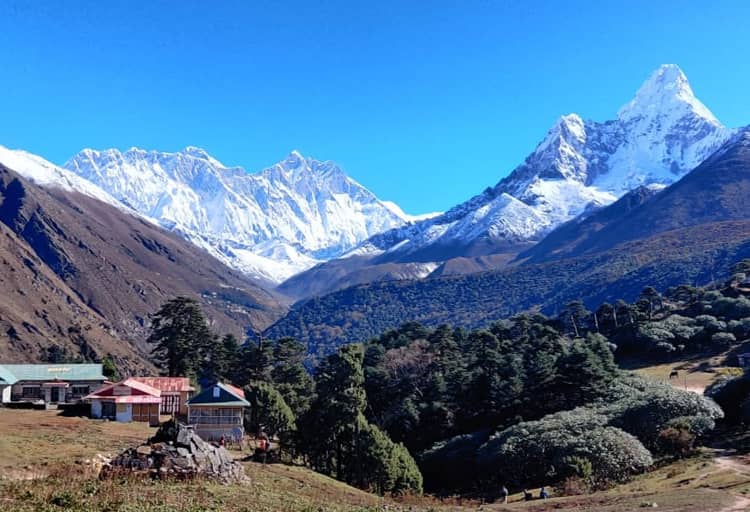
Important information about the trek
-
Permits: You'll need two permits to trek to Everest Base Camp: the Sagarmatha National Park Permit and the Khumbu Pasang Lhamu Rural Municipality Permit (also known as the TIMS card). These permits can be obtained in Kathmandu or Lukla.
-
Guide and Porter: Hiring a local guide and/or porter is highly recommended. A guide can help you navigate the trail, provide cultural insights, and ensure your safety. A porter can carry your heavy backpack, allowing you to enjoy the trek more comfortably.
-
Fitness : Remember that the Everest Base Camp trek is physically demanding and requires a reasonable level of fitness. It's essential to consult with a healthcare professional before undertaking such a high-altitude trek, especially if you have any underlying health concerns. Proper preparation and precautions will help ensure a safe and memorable journey to the base of the world's tallest mountain.
-
Acclimatization: Altitude sickness is a significant concern in the Everest region. Acclimatization is crucial to avoid altitude-related illnesses. The recommended itinerary includes several rest days to help your body adjust to the increasing altitude.
-
Packing List:
- Warm clothing, including down jackets, thermal layers, and gloves.
- Good quality, broken-in hiking boots with sturdy soles.
- A comfortable and well-fitting backpack.
- High-quality sunglasses with UV protection.
- Sunscreen, lip balm, and a wide-brimmed hat.
- Water purification tablets or a filter.
- Basic first aid kit with altitude sickness medication.
- A sleeping bag suitable for cold weather.
- Snacks and water (you can buy bottled water along the trail, but it's expensive).
- Trekking poles for stability on steep terrain.
- Headlamp with extra batteries.
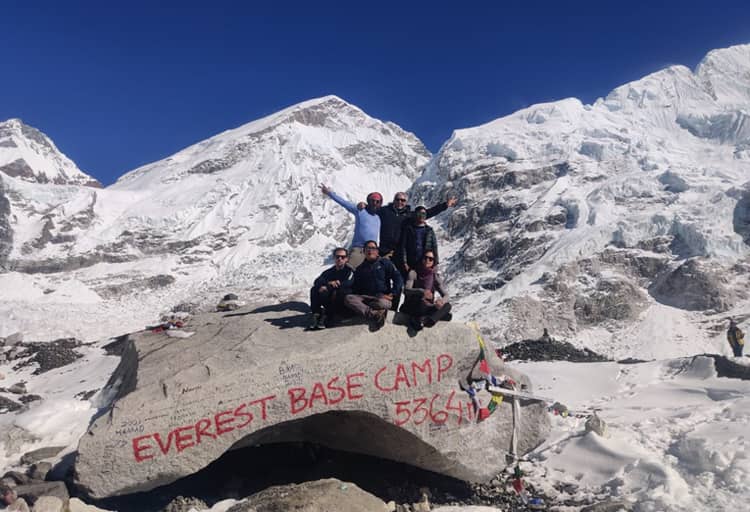
-
Food and Water: The tea houses along the trail offer a variety of food options, but the menu becomes more limited as you gain altitude. It's a good idea to carry some energy bars and snacks. Also, consider treating water with purification tablets or a filter to avoid waterborne illnesses.
-
Altitude Sickness: Be aware of the symptoms of altitude sickness, which can include headaches, nausea, and dizziness. If you experience severe symptoms, it's important to descend to a lower altitude immediately. Proper acclimatization and staying hydrated can help prevent altitude sickness.
-
Weather: The weather in the Everest region can be unpredictable, even during the trekking season (spring and autumn). It's essential to be prepared for cold temperatures and the possibility of rain or snow.
-
Travel Insurance: Make sure you have comprehensive travel insurance that covers trekking at high altitudes, including medical evacuation in case of emergencies.
-
Respect Local Culture: The Everest region is home to the Sherpa people, who have a rich culture and traditions. Be respectful of their customs and beliefs. Ask for permission before taking photos of people, their homes, or religious sites.
-
Pack Light: Keep your backpack as light as possible. Porters have weight limits, and you don't want to overburden yourself.
-
Lukla Flights from Kathmandu or Ramchhap : The flight from Kathmandu to Lukla, where many treks to Everest Base Camp begin, can be delayed or canceled due to weather conditions. Be prepared for potential delays and have some flexibility in your schedule. The flight leave from Ramechhap, some 80 km from Kathmandu during the months of peak tourist season,
-
Trekking Season: The best times to trek to Everest Base Camp are in the spring (April to May) and autumn (September to November) when the weather is relatively stable.
What our clents say

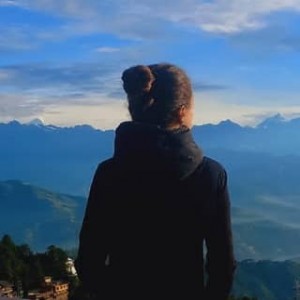
Kathmandu, 5 day's experience !
I came to Nepal from China for 5 days. I decided to stay in Kathmandu. As I am interested in religion, spirituality and nature, I decided to divide my stay…
Read More
Did it again !
After an incredible trek with them to the Langtang valley in March, they arranged another awe inspiring trek for us to the Manaslu circuit. Rabi created an itinerary that suited…
Read More
Did it again !
After an incredible trek with them to the Langtang valley in March, they arranged another awe inspiring trek for us to the Manaslu circuit. Rabi created an itinerary that suited…
Read More
Did it again !
After an incredible trek with them to the Langtang valley in March, they arranged another awe inspiring trek for us to the Manaslu circuit. Rabi created an itinerary that suited…
Read More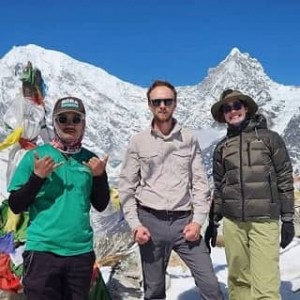
Brilliant Team fantastic trek
Rabi and Prabin provided a fantastic service at great value.
We spent 10 days with Prabin as our guide and we couldn't have been happier - he was professional, knowledgeable…
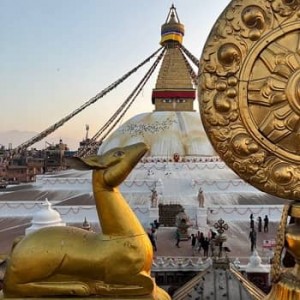
First time in Nepal but hopefully not my last !
Rabi arranged a number of one day short treks for me and a two day tour of Kathmandu. These were either led by Rabi or Prabin. Both are excellent, experienced…
Read More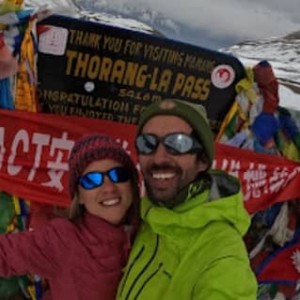
Great Adventure | Professional service
Last month we had the greatest experience of being amazed by the Annapurna circuit. We took the tour w Rabi and his hospitality was outstanding. He organised for us the…
Read More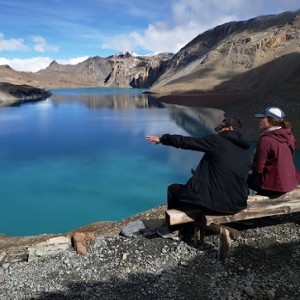
An unforgetable Adventure
My partner and I did a customized 15-day itinerary of the Annapurna Circuit with iTour Nepal and it was one of the best trips of our lives! Rabi was extremely…
Read More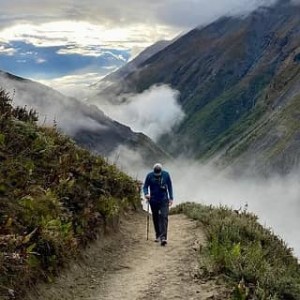
An unforgetable Adventure
My partner and I did a customized 15-day itinerary of the Annapurna Circuit with iTour Nepal and it was one of the best trips of our lives! Rabi was extremely…
Read More
A great Service !
Rabi led our 7 day tour from Kathmandu to Pokhara to Chitwan National Park and back to Kathmandu. He was very responsive during our booking process, super helpful in setting…
Read More
I will be back !
amazing view..good leader, good organizer..recommended executor of the Annapurna Basecamp tour....I will be back on a trip to Nepal by using i tour Nepal again
Read More
Excellent!
It is my second experience with iTourNepal and, as last year, it was EXCELLENT!
iTourNepal is truly an eco and socially responsible tour company focusing on sustainability.
The team is…
Read More
Nepal Bhutan 15 days Tour
Rabi is a fantastic organiser. We had several moving dates during planning, including a major mid-tour reshuffle to include a helicopter trip to Everest Base Camp. We didn't miss anything.
…

Excellent tour of Annapurna base camp
I went for a week-long trek on the Annapurna Conservation area with iTourNepal in April 2022. Great experience, somptuous landscapes.
I am very satisfied with iTourNepal. Ravi was great…

Great Tour in Upper Mustang
This trip in Upper Mustang was wonderful, Rabin is very friendly and attentive. We loved the places we stayed, especially in Lo Mantang. Accommodation was nice everywhere, Rabin and the…
Read More
Outstanding Motorbike Trip to Mustang
Great experience with itournepal, from early stages to completion. We went for a 2 weeks motorbike tour in Mustang, starting from Kathmandu. Rabi managed succes...
Read More
We will be back !
The tour, guides, and porters exceeded all of my expectations. They planned and adjusted our tour to our needs throughout the trek. They were experienced, positive, knowledgeable and so much…
Read More
Namaste Rabi !
Thank you so much for an amazing adventure. You and your team made this an unforgettable experiences. I survived the Annapurna trek thanks to your support and patient. Can't wait…
Read More
A great trekking Operator in Nepal
We were stopping in Nepal for 3 weeks, and we ended up organising all our tours through them.
Rabi & Shiva were absolutely great at organising our tours and…

Wonderful group of people !
We found Anna Nepal Trek on the internet and worked with them to plan several different tours in Nepal. Rabi helped us to plan a trip to see Chitwan and…
Read More
Beautiful and safe experience !
Rabi and Kopila were our Airbnb hosts and were so accommodating. We ended up selecting Anna Nepal Trek due to how great they both are, and Rabi's years of experience…
Read More